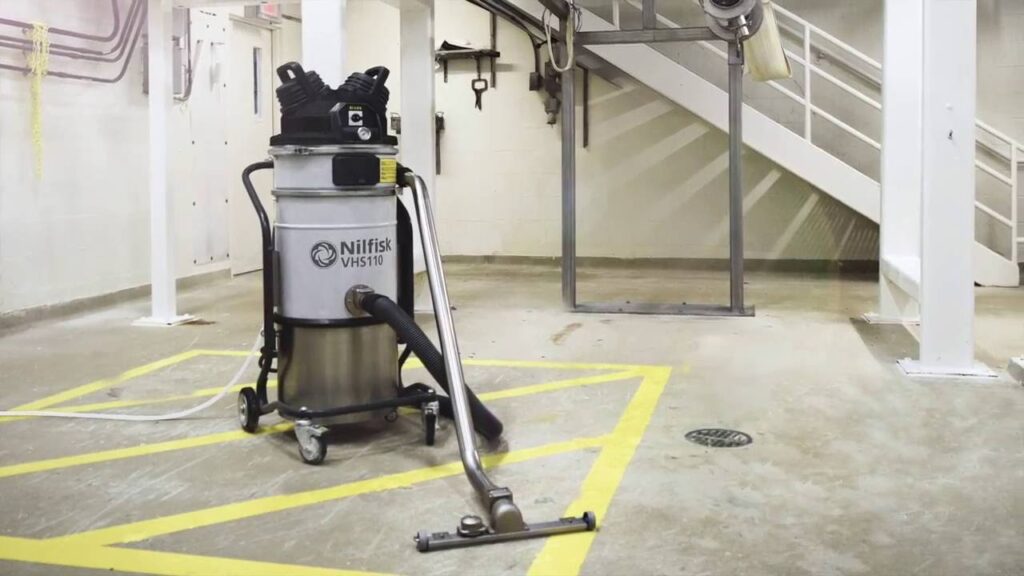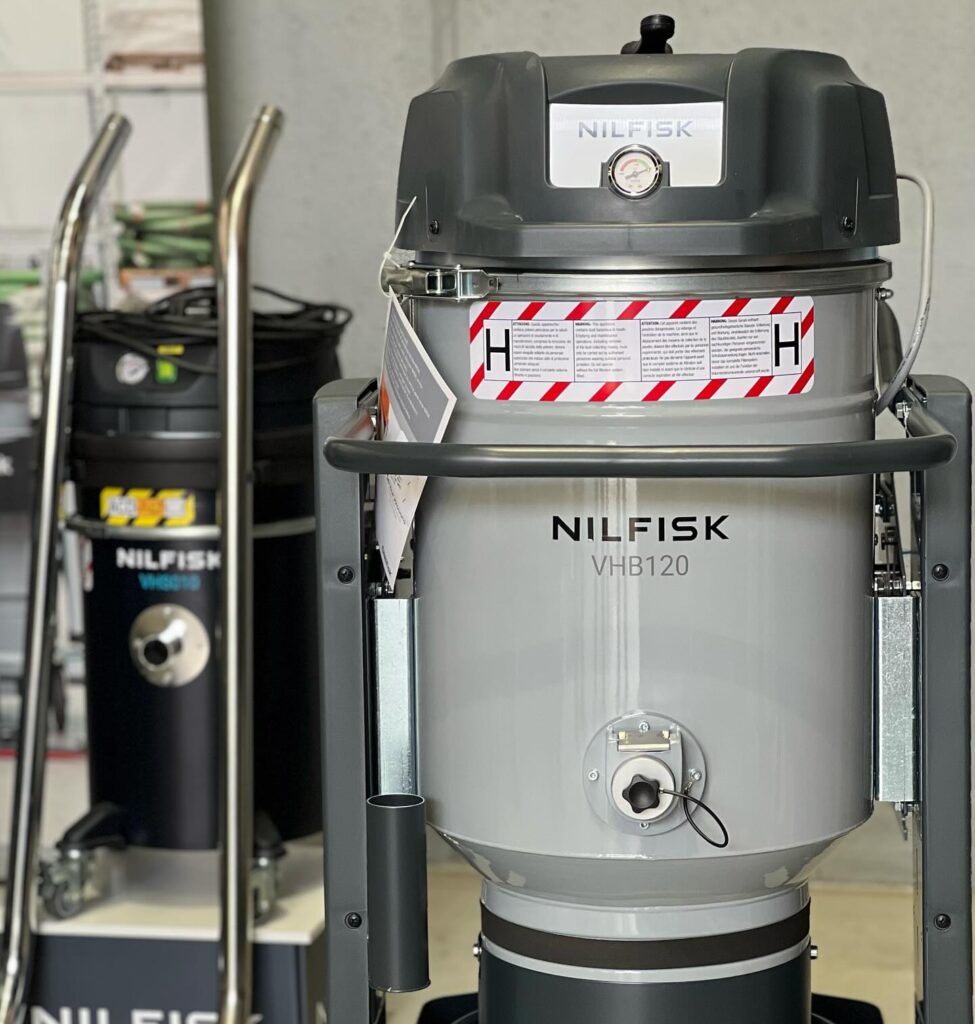Cleaning does not just make space look good; it is critical to have safe and efficient work environments. Cleanliness relates to productivity, equipment longevity, and workers’ health in industries. Industrial settings call for heavy-duty solutions to tackle mess, and more specialised cleaning tasks than home devices can afford. That’s where the industrial vacuum cleaner comes into play.
What is an industrial vacuum cleaner? A heavy-duty piece of cleaning equipment designed to remove debris, industrial waste, construction refuse and many other things. Designed for durability, efficiency, and power, these machines are indispensable tools in any warehouse, manufacturing plant, workshop, and other tough workplaces.
Contents
Types of Vacuum Cleaners

Industrial vacuum cleaners are designed to fit the varied demands of workplaces, and one of the most important ways they are differentiated is by their dust class rating: L, M, and H. These classes reflect the vacuum’s ability to handle different levels of hazardous materials and ensure that your workplace remains safe and compliant with health and safety regulations.
The General Cleaner
A reliable class L industrial vacuum cleaner is designed for handling low-risk materials, such as normal household or workshop dust, sand, and other non-hazardous debris. These vacuums are suitable for environments where the primary concern is general cleanliness rather than exposure to harmful particles. They are often used in woodworking shops, construction sites dealing with minimal dust, or general warehouse cleaning. These machines are an excellent choice for businesses looking for an affordable and efficient solution for non-hazardous cleaning tasks.
The Medium-Risk Cleaner
Moving up a scale, M-class industrial vacuum cleaners are designed to handle medium-risk dust. Included in this category are materials such as wood dust, and concrete particles which, if inhaled over time, can be quite harmful to health. Silica dust, for instance, is common in construction and masonry work and is one of the well-known causes of respiratory issues. M-class vacuums possess more sophisticated filtration systems, which can retain finer particles and prevent their return to the atmosphere. M-class machines are very often made compulsory in industries where personnel may be exposed to moderate amounts of hazardous dust, as in construction, wood processing, and metal treatment.
The High-Risk Cleaner
And finally, we have the class H. These vacuums are designed for high-risk applications where the dust and debris that are to be cleaned up come with a high level of danger. Examples include asbestos, carcinogenic dust, mould spores, lead particles, and other toxic substances. This heavy duty industrial vacuum cleaner option is designed with HEPA filters, amongst other things, to ensure that small particles are caught and disposed of safely.
Benefits
Investing in an industrial vacuum cleaner offers several benefits beyond keeping the workplace clean. One of the biggest advantages is improving workplace safety. Dust, debris, or liquid spills accumulated over time can result in the development of hazardous situations that cause accidents, injuries, or even machinery breakdowns. An industrial cleaner will reduce these risks by keeping floors, machinery, and other surfaces clean and unobstructed.
Another major advantage involves increased productivity. A clean environment allows workers to move with ease, find tools and materials in the shortest time, and operate machinery without hindrance. Additionally, industrial vacuums can clean wider areas than manual cleaning methods, thus saving precious time and effort.
These machines also save the health of employees working in the companies. Most industries produce airborne particulates at work that eventually affect the respiratory health of the workers in the long term. With advanced filtration mechanisms, industrial cleaners trap all the fine particulates, ensuring better air quality with minimal chances of health risks.
Features to Consider

While selecting vacuum cleaners for industrial use, you should be concerned with finding those features that will make yours suitable for your particular needs. One of the most critical factors you must look into is the suction power. Industrial cleaners are for heavy-duty cleaning, so ensure that the model you go for is strong enough to take in whatever kind of debris or materials you are dealing with.
Capacity is another important factor. Of course, industrial vacuum tanks are larger than those designed for household use, but the size you will require depends on how much trash your facility produces. If the capacity is big enough, it reduces how frequently you have to empty the tank, which saves time during busy operations.
How to Choose?
Vacuum cleaners for industrial use are irreplaceable assistants in keeping cleanliness, safety, and productivity at the highest level in demanding working conditions. From a variety of types, including dry vacuum, wet and dry, and more, there is a solution for every cleaning challenge. The selection of an appropriate industrial vacuum cleaner starts with assessing your cleaning needs and matching them with the features and capabilities of various models.
First, consider the nature of the waste you will be cleaning. For specialty applications, like hazardous material handling, make sure the vacuum has the required safety features. Consider also the size of your workspace and how often it needs cleaning. Large areas require high-capacity tanks and powerful motors to clean them efficiently, but for smaller areas and tight spaces, a more compact and portable model is more suitable.











